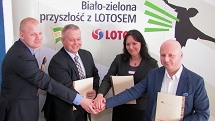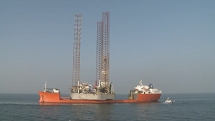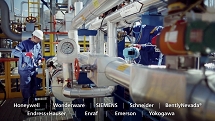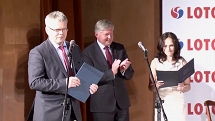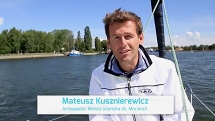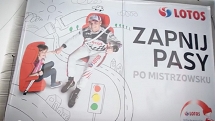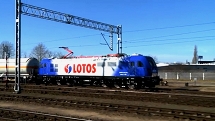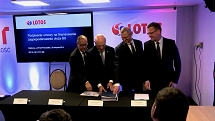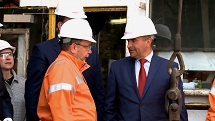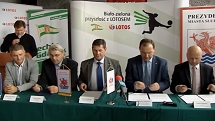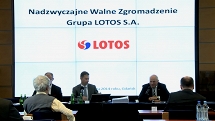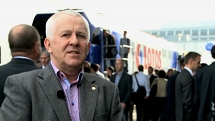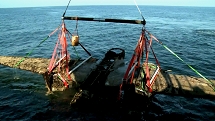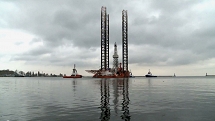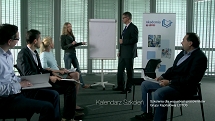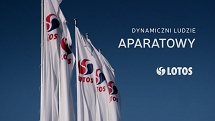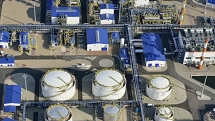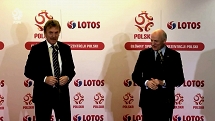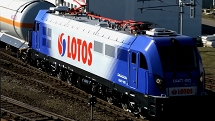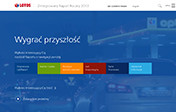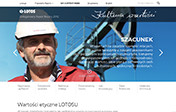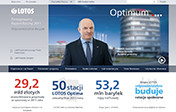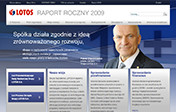-
Financial information
The past year ushered in a series of challenges for the companies in the fuel sector. The decisions made by us have demonstrated that we are able to take rapid steps to adapt to a demanding environment and ensure the desired profitability for our projects.
-
Segment performance
The segmental management model we have implemented enhances management efficiency, delivering cost and revenue synergies across the organization.
-
Letter from the Vice-President of the Board
2014 ushered in a series of challenges for the companies in the fuel sector. The decisions made by the LOTOS Group have demonstrated that we are able to take rapid steps to adapt to a demanding environment and ensure the desired profitability for our projects.
-
Business environment
The key factor that had a strong impact on both the global and Polish petroleum markets in 2014, with significant consequences for the LOTOS Group’s performance, was the price of crude oil, which also determined the price of petroleum products.
-
Strategic objectives
The LOTOS Group’s Strategy is designed to strengthen our position as a strong, innovative and efficient business which plays a major role in ensuring national energy security.
-
Business model
Our operations consist in crude oil production and processing, as well as wholesale and retail sale of petroleum products, among which are: fuels (unleaded gasoline, diesel oil and light fuel oil), heavy fuel oil, bitumens, aviation fuel, naphtha, propane-butane LPG and base oils.
-
Risk and opportunities
At the LOTOS Group, we identify a range of diverse risks, which may affect all areas of our business. The key risks in terms of their impact on our operations are the financial risks as well as risks affecting the exploration and production area. In the analysis of the risks, we also factor in issues related to sustainable development.
-
Key data 2014
With revenue of ca. PLN 28.5bn in 2014, we rank fourth in the group of 500 largest businesses in Poland.

Management segment
In 2014, the main sources of political and legal risks included the Ukrainian crisis and the newly proposed EU legislation, especially plans to tighten the EU climate policy until 2030. The Polish regulatory framework, on the other hand, posed a lesser business risk. In 2014, Polish legislation was evolving in the direction conducive to the petroleum industry (e.g. the new act on mandatory oil and fuel stocks, and regulations governing the exploration and production of hydrocarbons). In addition, a deepening of the dialogue between law makers and industry representatives (both businesses and trade organisations) helped mitigate the business risk associated with the Polish regulatory framework. Nevertheless, our involvement in the legislative process, through public consultations of draft laws and government-coordinated working groups, is still very important.
1. Political risks
A major political risk that could affect our trade flows was the escalating tension between Ukraine and Russia and the resulting EU sanctions on Moscow. We closely monitored the geopolitical developments and their consequences. In 2014, the EU sanctions did not affect either the crude oil procurement or trade in petroleum products. The only noticeable effect, resulting from the earlier US sanctions, was that banks tended to be more cautious when intermediating in settlements with Russian entities.
2. Legal risks
EU’s 2030 climate policy
A substantial risk is posed by the solutions of January 22nd 2014 prepared by the European Commission and designed to tighten the climate policy until 2030. The European Union proposes that the greenhouse gas emissions reduction target be doubled to 40%, the share of renewable energy sources (RES) in electricity consumption be raised to 27%, and the annual rate of CO2 emissions reduction in the emissions trading system (ETS) be increased from 1.7% to 2.2%. Additionally, energy-intensive industry sectors have strong concerns that they may be included in the ETS, in which case they would face bankruptcy.
If operating costs of European enterprises go up as a result of more stringent regulations on CO2 emissions, Europe will become an importer of fuels and chemicals from countries where such limits do not apply. We are already seeing a decline in EU companies’ competitiveness relative to market players operating without CO2 emissions limits. A case in point is the refining industry, currently in serious crisis (especially in the EU15 countries). Since 2009, the number of refineries in the EU has dropped from 98 to 87, and crude oil throughput is expected to go down by almost 30% by 2020, bringing about further shutdowns.
Although members of the government administration and representatives of the oil industry are engaged in regular consultations on draft EU legislation and present the Polish position on the forum of the EU, in many cases the Polish voice has gone unheard. This stems from an inability to forge alliances with other countries to back certain initiatives. The Polish administration should find ways to support not only local, but also international groups whose business goals converge with Poland’s national interests. As the interests of individual EU member states vary considerably, the adopted legislation does not always correspond with the needs and expectations of the Polish refiners.
Poland’s Energy Policy until 2050
In 2014, the Ministry of Economy commenced work on Poland’s Energy Policy until 2050 and invited industry organisations, including CEEP (co-founded by Grupa LOTOS), to cooperate in the project. One result of this cooperation is that the draft policy includes provisions which, if maintained, will support:
- Protection of the domestic fuel market, including maintenance of the government’s control of key elements of crude oil and fuel infrastructure, and ensuring that internal demand is covered with domestic production to the maximum possible extent;
- Taking further coordinated steps to curb the ‘grey market’ in fuel trading;
- Reducing the burden on entities operating in the crude oil sector, including possible continuation of the current changes in the mandatory stocks system;
- Extending the catalogue of biocomponents and manufacturing technologies for alternative liquid fuels, including technologies relying on co-hydrogenation.
No comprehensive legal framework for the oil sector
Lack of a uniform regulatory framework for the oil sector represents a risk factor. The sector is regulated under multiple legal acts, compliance with which is overseen by different departments, which hampers the industry’s smooth functioning. One of important proposals put forward during the work on Poland’s Energy Policy until 2050 concerns preparation of Petroleum Law − a single legal act which would include all regulations governing operation of the oil and fuel sector in Poland.
3. Reputation risks
Reputation risks are related to events that may affect the perception of the LOTOS Group and value of the LOTOS brand. Impairment or loss of reputation may be caused by circumstances outside Grupa LOTOS’ control (e.g. impaired reputation of the entire industry), or directly by the Company’s activities (e.g. in the event of disruptions to product supplies, material deterioration of product quality, intentional misconduct or violations resulting in losses to us or our trading partners), or by failures resulting in injury to people or contamination of the natural environment. We are aware that loss of stakeholders’ trust may translate into negative perception of the LOTOS Group and its operations, and thus adversely affect its performance. For this reason, we have assessed each risk identified at the LOTOS Group in terms of its effect on the reputation, and have drawn up a separate map of reputation risks. For each major reputation risk, we implement a mitigation plan.
4. Social risks
Social risks are related to the effect of our operations on the social environment, our employees, and employees of our trading partners. Open and fair communication of the projects being executed and planned is intended to make stakeholders aware of the LOTOS Group’s activity and is one of the tools used to mitigate potential risks. For instance, in connection with the launch of work on the EFRA Project, we organised meetings with local communities to present the project objectives and consequences. Furthermore, we are implementing the '2013-2015 Effective and Rising' Programme to increase efficiency and support continued dynamic development of all LOTOS Group companies. The planned changes, in particular those involving restructuring, may cause concerns and be disapproved of by employees and the immediate environment. For this reason, periodic meetings are being held between our employees and members of the Board of Grupa LOTOS/management boards of its subsidiaries to address doubts and concerns relating to the ongoing processes. (To learn more, see Integrated Annual Report 2013)
5. Risk of misconduct
Misconduct risk is the risk of an intentional act or omission which constitutes a violation of the generally applicable laws or the rules in place in the LOTOS Group, committed to secure an unlawful gain or leading to the Company sustaining a loss (including any forms of corruption). To minimise this risk, we have implemented a systemic approach to preventing misconduct, consisting in comprehensive and organised efforts aimed at identifying and assessing the risk. This includes solutions for preventing and identifying misconduct and minimising its consequences. The Misconduct Prevention System is subject to an annual survey as part of an analysis of the Company’s organizational maturity, and its consistently improving assessment proves the effectiveness of the solutions applied. (See more)






